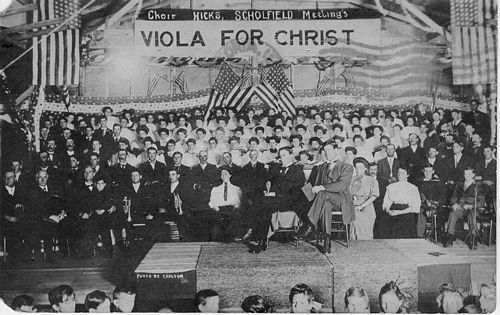
The National Conference for Media Reform held in Memphis was a gathering of democratic and progressive activists. A blog entry from the tech and telecom news site Ars Technica described the event this way:
“Ed Markey (D-MA) and John Dingell were there, as was Sen. Bernie Sanders (I-VT) and the two Democratic FCC commissioners Jonathan Adelstein and Michael Copps. The conference was no place for Republicans; a Bush impersonator was booed by the crowd and Jesse Jackson, Jane Fonda, and Danny Glover all gave speeches.”
The local paper, the Memphis Commercial Appeal, reported that:
“With more than 3,500 attending the Memphis conference Friday through Sunday, this was the third and largest event for National Conference on Media Reform, surpassing in size previous conferences in Madison, Wis., in 2003 and St. Louis in 2005 . . . The conference’s organizer was Free Press, a nonprofit that advocates for local ownership of media, community and public broadcasting, and “Net neutrality,” which prohibits telecom companies from charging individuals or companies to provide superior Internet service.”Â
It’s unfortunate but inevitable, perhaps, that a media reform effort take on a partisan tinge. Media and politics, like the song says, go together like a horse and carriage. Only in this case they should get unhitched.
On their web site the founders of Free Press tackle the question of whether the group is conservative or liberal:
“Sometimes it is thought that efforts at media reform are “liberal†or “left-wing†because the status quo of media is one where a handful of massive media corporations dominate the system, so criticism of the status quo is by definition anti-corporate. But this assumes that conservatives are content with the hypercommercialized media system that exists in the United States (and world) today. In fact, there is a crucial strain of conservatism that is deeply troubled by media concentration, by noncompetitive markets, by weak journalism, and by hypercommercialism.”
Boy, that’s a mouthful. And while I’m sure it was written with honest intent it sounds like lefty lingo. I can imagine conservatives sharing some of those beliefs. But I cannot imagine them mouthing such words. Is there a way to hook them? What if we made the appeal a bit more like a sermon, something like:
“Our children are being seduced before our very eyes. They’re getting sucked in by commercials and hooked on brands. Brands! That’s what they used to do to cows. And they’re doing it to our kids. And why not. Because we’re doing it to ourselves. Who hasn’t run up the charge card for trinkets? And just what is it that fills our heads with all these wants? What makes its living by making us want things? It’s time to tell the media: lead us not into temptation!”
Or words to that effect. I’m not a person of religious faith. But I see no way to reconcile the moral rectitude that is the hallmark of religious conviction with the self indulgence inherent in a consumerist society. So I think left and right will end up in the same place on this; they may just mobilize differently.
Meanwhile, we keep filling our heads with commecial messages that have corrosive effects on behavior. Consider the results of a scientific survey in which Harris Interactive, the polling firm, asked tweens and teens what makes them happy and what are the prime influences in their lives (tweens are children whose age lies between single-digit and teens).
Moms will be pleased to hear that they’re still tops on the list of what makes young ‘uns happy. Harris said they are followed by friends and grandmas. Dads — well, how do I put this – they’re on par with CDs and only slightly more important than cell phones in terms of what puts a smile on the faces of today’s kids. The report says:
“Results indicate that both tweens (ages 8 to 12) and teens (ages 13 to 18) would rather spend time buying things than anything else. Seventy-six percent (76%) of tweens and sixty-two percent (62%) of teens say they really enjoy going shopping, and seventy-one percent (71%) overall say they would be happier if they had more money to buy more things for themselves.”
Is that anyone’s idea of family values?